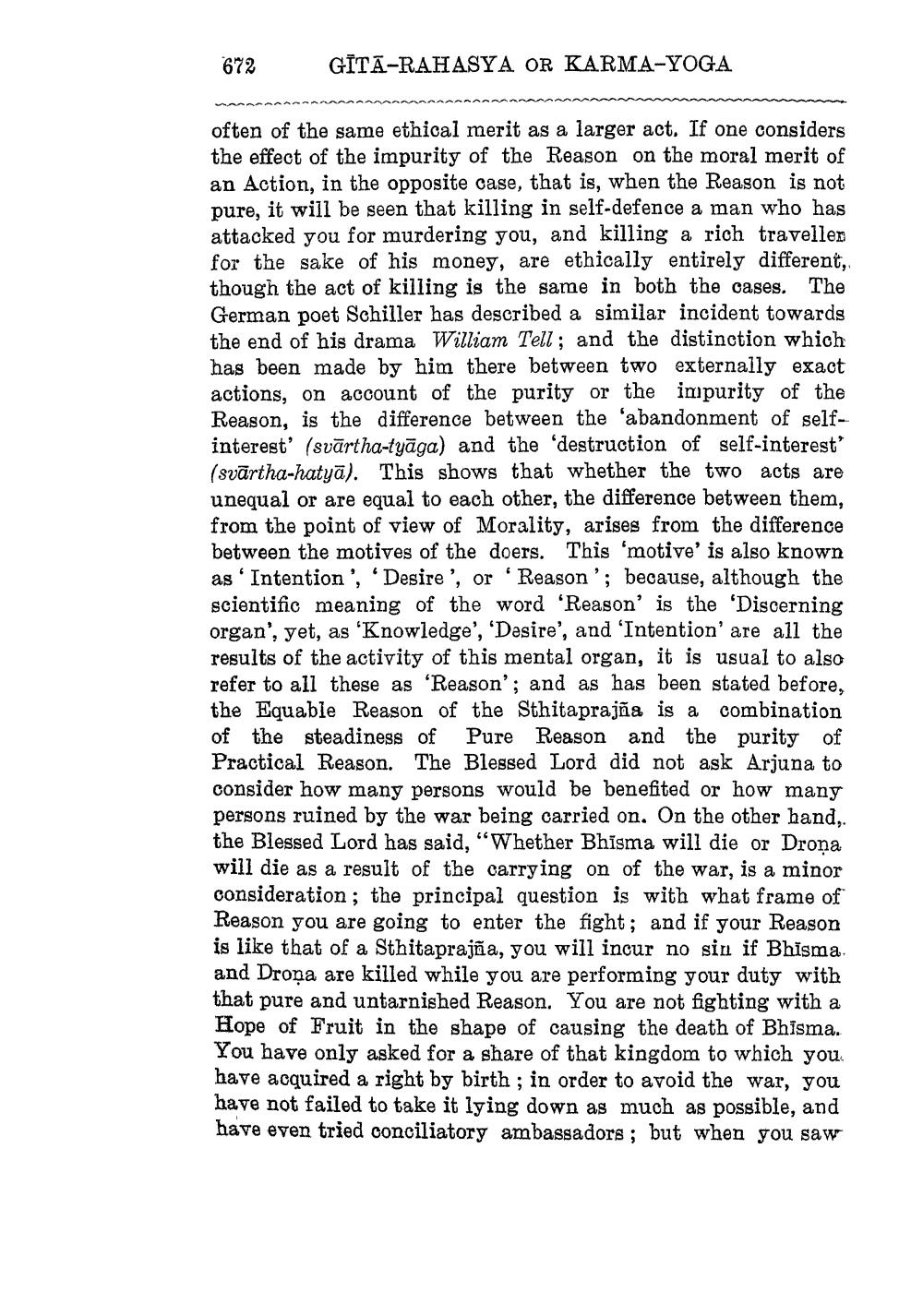________________
672
GĪTĀ-RAHASYA OR KARMA-YOGA
often of the same ethical merit as a larger act. If one considers the effect of the impurity of the Reason on the moral merit of an Action, in the opposite case, that is, when the Reason is not pure, it will be seen that killing in self-defence a man who has attacked you for murdering you, and killing a rich travellen for the sake of his money, are ethically entirely different, though the act of killing is the same in both the cases. The German poet Schiller has described a similar incident towards the end of his drama William Tell; and the distinction which has been made by him there between two externally exact actions, on account of the purity or the impurity of the Reason, is the difference between the 'abandonment of selfinterest' (svārtha-tyāga) and the destruction of self-interest (svārtha-hatyā). This shows that whether the two acts are unequal or are equal to each other, the difference between them, from the point of view of Morality, arises from the difference between the motives of the doers. This 'motive' is also known as 'Intention', 'Desire', or 'Reason'; because, although the scientific meaning of the word 'Reason' is the 'Discerning organ', yet, as 'Knowledge', 'Desire', and 'Intention' are all the results of the activity of this mental organ, it is usual to also refer to all these as 'Reason'; and as has been stated before, the Equable Reason of the Sthitaprajña is a combination of the steadiness of Pure Reason and the purity of Practical Reason. The Blessed Lord did not ask Arjuna to consider how many persons would be benefited or how many persons ruined by the war being carried on. On the other hand.. the Blessed Lord has said, “Whether Bhisma will die or Drona will die as a result of the carrying on of the war, is a minor consideration; the principal question is with what frame of Reason you are going to enter the fight; and if your Reason is like that of a Sthitaprajña, you will incur no sin if Bhisma, and Droņa are killed while you are performing your duty with that pure and untarnished Reason. You are not fighting with a Hope of Fruit in the shape of causing the death of Bhisma. You have only asked for a share of that kingdom to which you have acquired a right by birth; in order to avoid the war, you have not failed to take it lying down as much as possible, and have even tried conciliatory ambassadors; but when you saw




